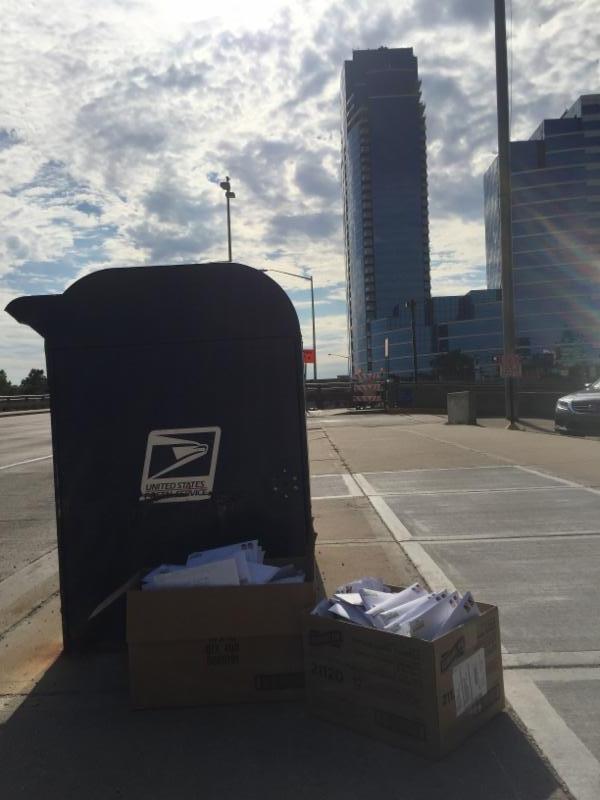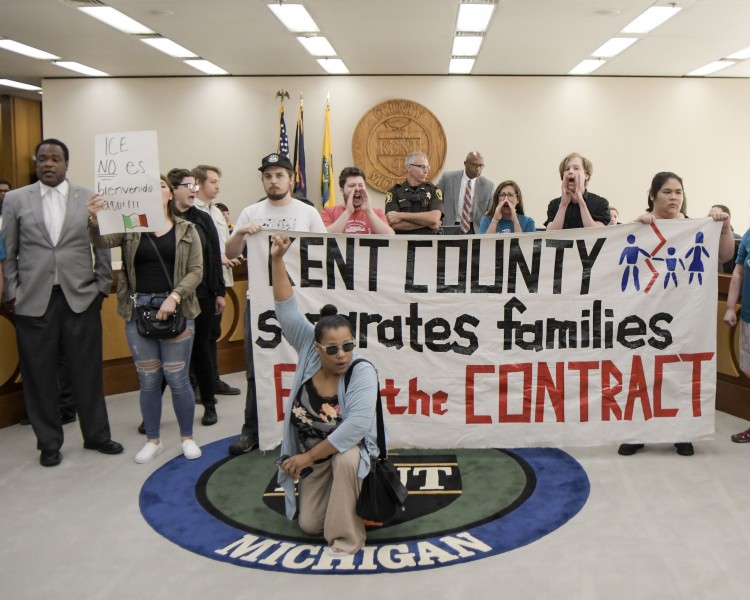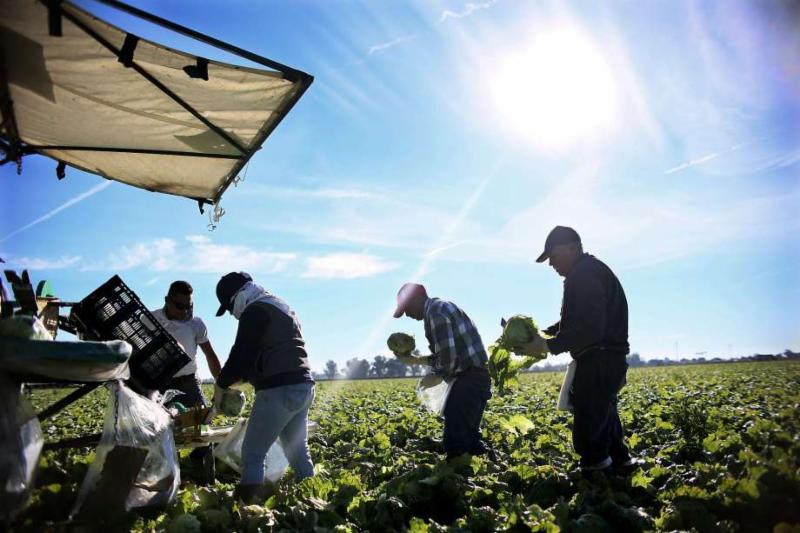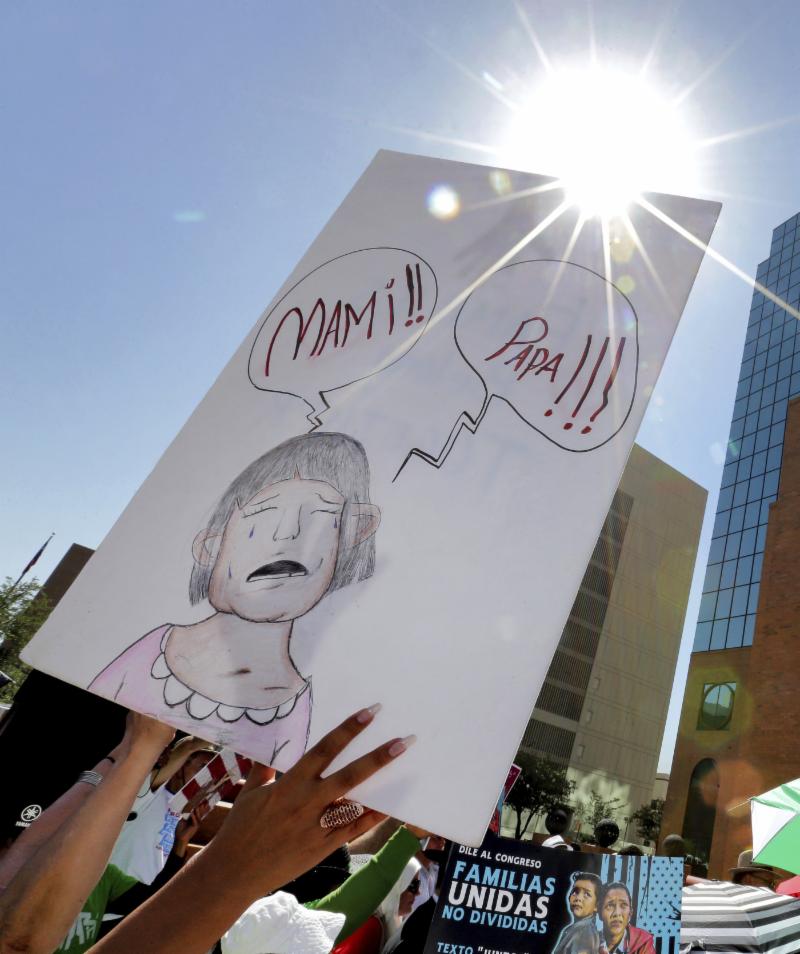|
Follow Us At:
migrantlegalaid.com

|
|
|
|
Class Action Settlement Reached:
¡Sí se pudo!
This week MLA sent out 330 letters to harvesters of Blue Star Farms who worked the 2011, 2012, or 2013 blueberry seasons. MLA is alerting them to their claim in a settlement that was reached due to alleged inaccurate and undisclosed accounts of hours and pay rates. The settlement was for $200,000 and class members have an opportunity to file a claim and receive a portion of the settlement. If you or someone you know worked for Blue Star Farms during one of these seasons please check Migrant Legal Aid's
website for information as it becomes available or call MLA for more information.
|
|
|
Former MLA Client Enslaved in Michigan is Reunited with Daughter After Many Years
|
Migrant Legal Aid is so happy to see the efforts of our team in bringing Jimmy Pineda beyond his history as a victim of labor trafficking and reuniting him with his beautiful daughter Yanely, from Honduras, whom he hadn't seen in person for 14 years. The Pineda family is now reunited and safe in the United States. Mom Iris, little brother Jimmy Jr, and dad Jimmy Pineda.
Watch the reunion video
here.
|
|
|
Protesters
Shut Down Commission Meeting and Take to the Streets in Grand Rapids
|
Sergio Cira Reyes is a resident of Kent County and a formerly undocumented immigrant, who organized a group of
over 120 people who protested outside at Calder Plaza and at the Kent County Board of Commissioners meeting on June 28, 2018 against Kent County's contract with ICE and the detaining of undocumented immigrants. The goal of the protesters was to end Kent County's contract with ICE.
Or you can watch part of the commission meeting here.
|
|
|
After 80 years without Overtime: Fairness for Farm Workers Act Introduced
|
Protecting Immigrant Families: Anticipated Public Benefits Proposed Rule Statement
Petition
A rule change by the Department of Homeland Security would require immigration caseworkers to consider a much wider range of factors when evaluating whether someone is likely to be dependent on public assistance. In addition to forms of cash welfare assistance already used in such cases, it would add the "non-cash" benefits used by more than one-fifth of the U.S. population, both foreign- and native-born. DHS officials said the proposal is not yet final, but the administration is eager to ensure "that foreign nationals seeking to enter or remain in the U.S are self-sufficient."
This proposal would endanger immigrant families. By forcing immigrant families to choose between meeting basic needs and keeping their family together in the U.S., the proposed rule would drive up poverty, hunger, unmet health care needs, and worsen a range of other problems facing communities across the U.S.
If your organization is interested in signing a petition to stop this potential measure please click the link below and add your organizations contact information.
Read more about the proposed measure
here
and
here
|
|
USDA Extends Housing Eligibility for Temporary Farm Workers
The U.S. Department of Agriculture (USDA) today released internal guidance on changes made to farm labor housing eligibility. The Consolidated Appropriations Act of 2018 amended a section of the Housing Act of 1949 to extend the Farm Labor Housing tenant eligibility to agricultural workers legally admitted to the United States and authorized to work in agriculture. Due to this rule change, domestic farm laborers legally admitted into the country under an H-2A work visa are now eligible for this state-inspected housing.
The application period is now open, with a deadline of Aug. 27, 2018. Click
here to apply.
|
Delays On Children Being Reunited With Their Families
|
One-year-old shows up in Immigration Court with his attorney after being separated from his father earlier this year. He is one of several immigrant children who have had to appear in court without their parents present. Undocumented children are not guaranteed court-appointed lawyers.
A U.S. District Judge set a deadline for family reunification of July 10 for children under the age of 5. For older children, it's July 26. Health and Human Services Secretary Alex Azar said that government personnel are using DNA samples to verify family relations. Some parents are also being moved closer to their children in an attempt to meet the deadline, as well as the Trump administration asking the judge for more time.
|
|
|
Trump Admin Tells Court It Has Only Returned 2 Out Of 102 Immigrant Kids Under 5 Years Old
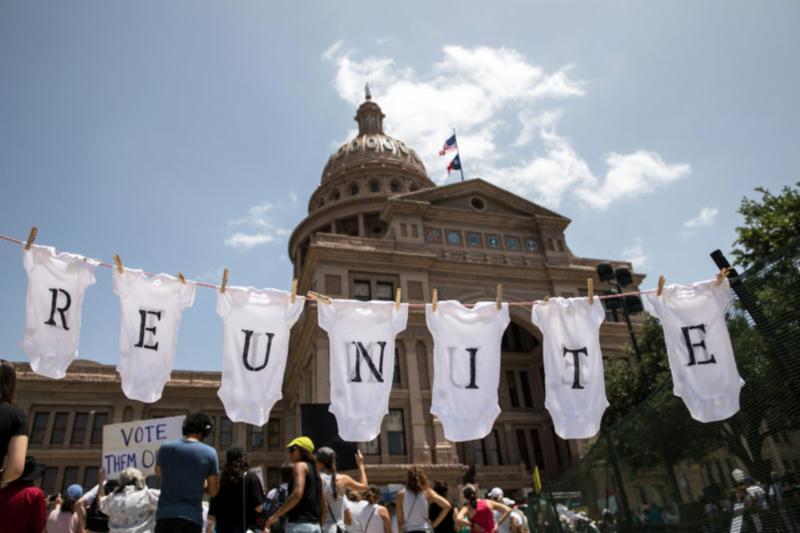
Lawyers for the Trump administration appeared once again in a courtroom in San Diego to ask a federal judge to push back his deadline for the reunification of children under five years old who were taken from their parents at the U.S.-Mexico border. And once again, U.S. District Judge Dana Sabraw held off on giving them an extension, and demanded instead that they return to court on Tuesday to explain how many families were reunited, why the government failed to reunite the rest by the deadline, and how much more time it will need for those cases.
|
Groups Make Final Push In Court to Ban Pesticide Linked to Brain Damage in Children
Final arguments challenging the Environmental Protection Agency's refusal to ban a pesticide linked to brain damage in children will take place this morning in the 9th Circuit Court of Appeals. A coalition of labor and health organizations represented by Earthjustice, will ask a panel of three judges to overturn former EPA Administrator Scott Pruitt's decision not to ban chlorpyrifos, a dangerous nerve agent that can damage the developing brains of children, increasing the risk for reduced IQ, loss of working memory, and attention deficit disorders.
|
Artist Collects and Photographs Items Taken at the Border: Save the Date Oct 22, Saugatuck Showing of El Sueño Americano
Tom Kiefer was a part-time janitor for U.S. Customs and Border Protection in Arizona Border where he saw the practice of patrol agents confiscating canned goods and other food from people crossing illegally into the United States from Mexico. One day he realized there was more in the trash than just food. He found shoes, wallets, and even rosary beads and bibles which were deemed by border patrol agents to be "non-essential" or "potentially lethal."
That is where Mr. Kiefer stepped in, salvaging the items from plastic trash bags and storing them until he could figure out how to show them to the world.From 2007 through 2014, Mr. Kiefer collected thousands of personal items that had been taken and discarded. He curated the items, photographed them and released a number of images on his website in the summer of 2015, which prompted some attention in the arts world. The photographer sees a thread between stripping migrants of their personal possessions and the policy of breaking up families.
|
|
|
